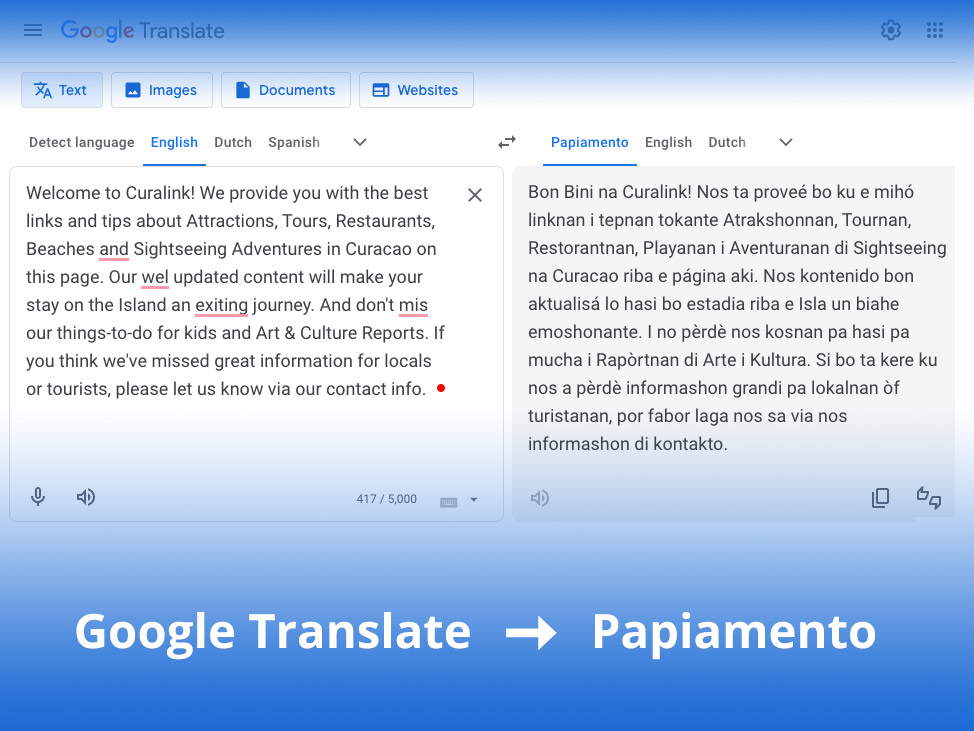In a significant milestone for linguistic diversity, Google Translate has recently incorporated Papiamento as one of its language options. Papiamento, the vibrant creole language spoken in the Caribbean islands of Aruba, Bonaire, and Curaçao, boasts a rich history and evolution. The inclusion in Google Translate not only highlights the language's cultural significance but also aids in its preservation and accessibility for speakers and learners worldwide.
Papiamento traces its roots back to the 16th century, evolving from a mix of Portuguese, Spanish, Dutch, and African languages. This linguistic blend resulted from centuries of colonization, trade, and migration in the Caribbean. The first Papiamento dictionary, which played a crucial role in standardizing the language, was published in the early 20th century. This dictionary helped to solidify the orthographic norms and facilitated formal education and documentation in Papiamento, ensuring its transmission to future generations.
The first Papiamento-Dutch dictionary was published in 1859, marking a pivotal step in the language's formal documentation. The 1870s saw the emergence of the first newspapers featuring Papiamento, integrating it into public discourse and media. This progression culminated in 2007 when Papiamento was officially recognized as an official language of Curaçao in parliament, underscoring its cultural and societal significance.
Interestingly, while Papiamento is uniformly spoken across the islands, its written form exhibits notable variations between Aruba and Curaçao. Aruba's version of Papiamento employs a more phonetic spelling system, reflecting the sounds more directly, whereas the Curaçaoan version retains a historical and etymological approach, influenced by its Dutch and Spanish roots. These differences underscore the dynamic nature of Papiamento and its capacity to adapt and thrive in diverse cultural contexts. With its addition to Google Translate, Papiamento continues to evolve, embracing modern technology to bridge communication gaps and celebrate its unique heritage.

